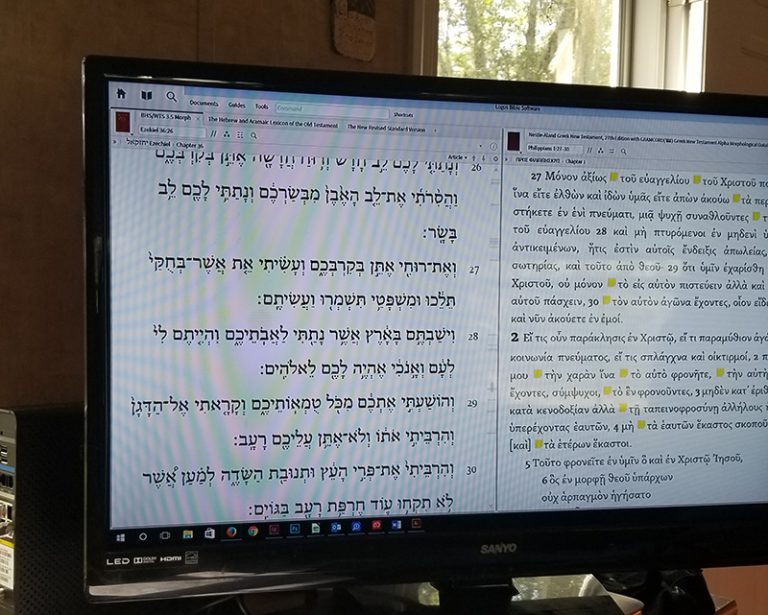Hobbins on Leviticus 25
John Hobbins is starting a series on Leviticus 25. It looks interesting.
John Hobbins is starting a series on Leviticus 25. It looks interesting.

I’m a little late posting the event for this, but my study of John will continue. I expect to post a couple more notes on the last hangout in this series as well as a follow-up to my conversation with Elgin Hushbeck, Jr. on the Energion Publications weekly hangout. For more information, see the link…
Isaiah 31:4-5 has presented a rather substantial exegetical, critical, and even translation problem to a number of commentators. The difficulty can be illustrated by comparing the translation of this verse in the REB: This is what the LORD has said to me: As a lion or a young lion growls over its prey when the…
Christian Carnival CL has been posted at Brain Cramps for God. It’s well organized and there is some good stuff there as always. I’ve already commented on one good post over at Threads from Henry’s Web. Go, read, enjoy!
Part of my current devotional reading is currently in Isaiah. Today this included Isaiah 46:10 — (10) I declare the end when it is just the beginning, From ancient times, things that have not yet been done. I say, “My plan will be established, and I will do everything I desire.” — Isaiah 46:10 (my…
Tonight’s study on According to John, based on Chapter 14 of Dr. Herold Weiss’s book Meditations on According to John, will have me going far afield from the gospel of John into a discussion of individual and community memory and the importance of a message transmitted by and shaped by a community. I will argue…

This review is of a Bible I received as a #BibleGatewayPartner. When I set out to review a Bible, I find it difficult to determine precisely what I should discuss. There is the translation it is based on, the nature and extent of the notes, the theological positions that drive those notes, and elements of…